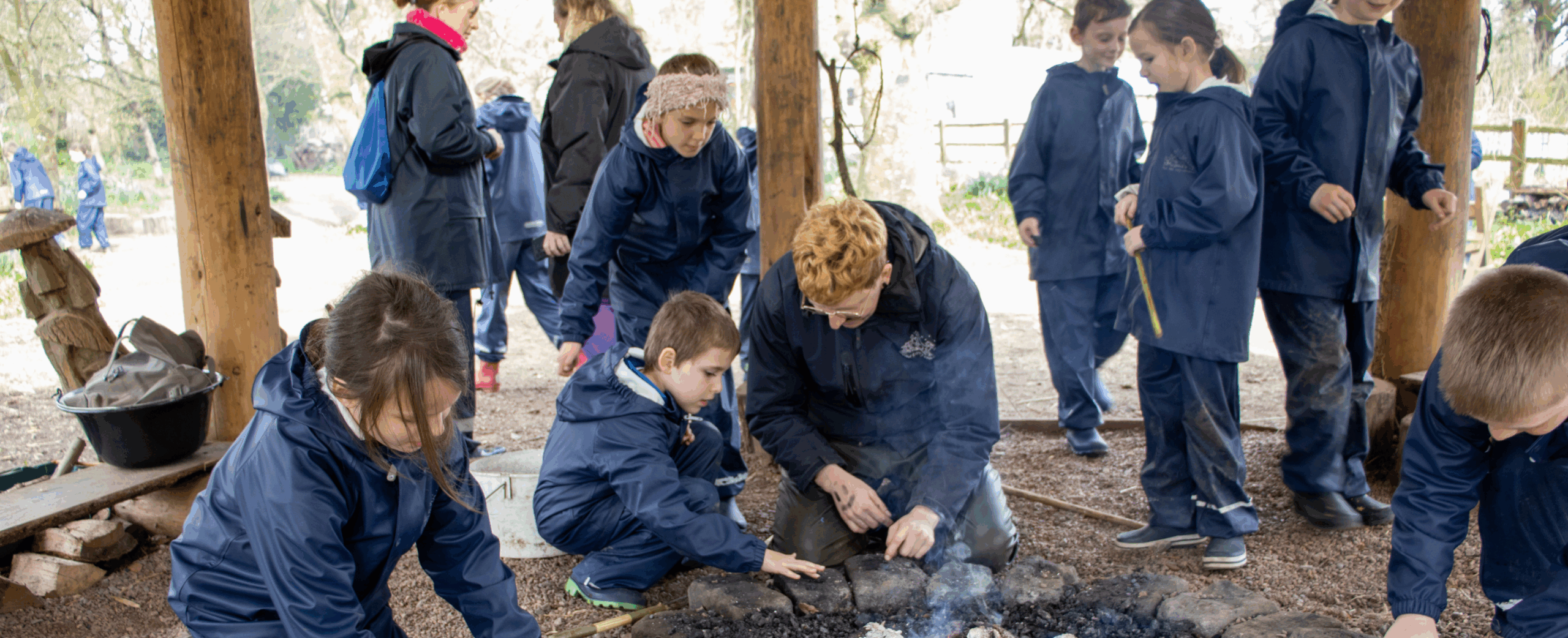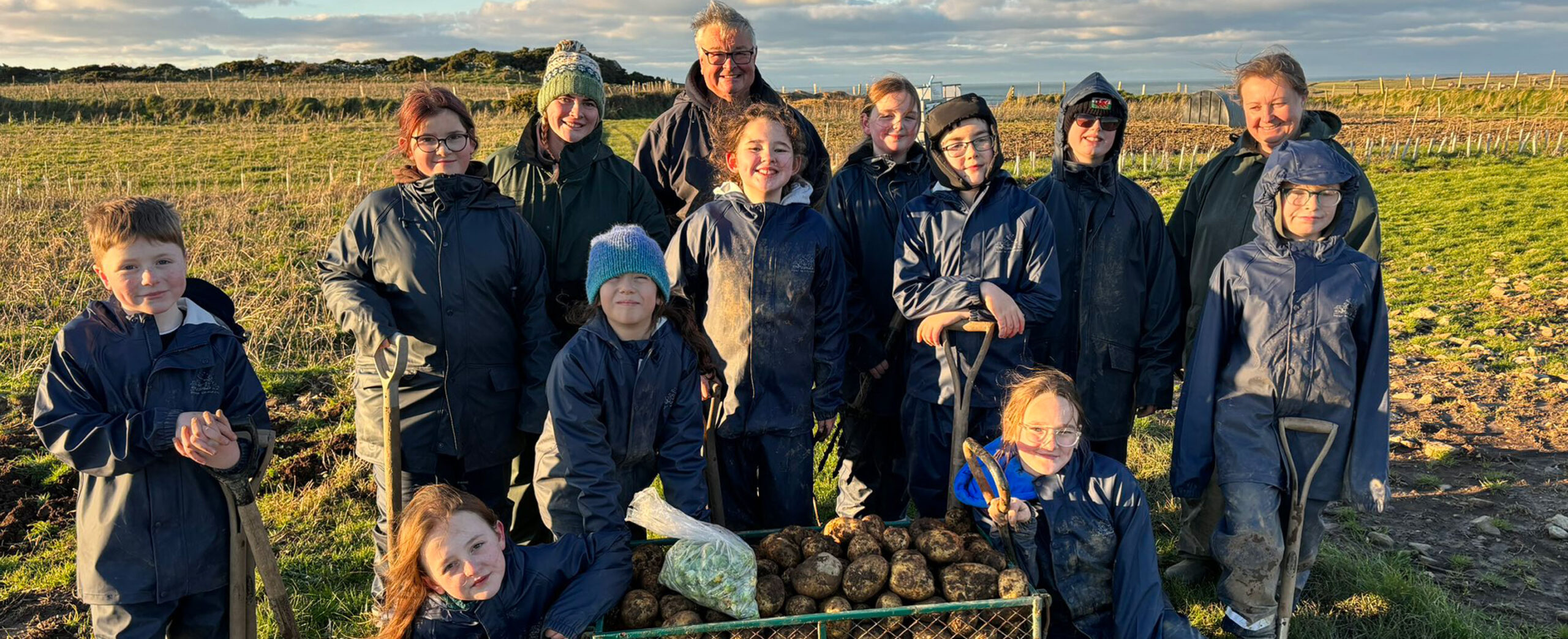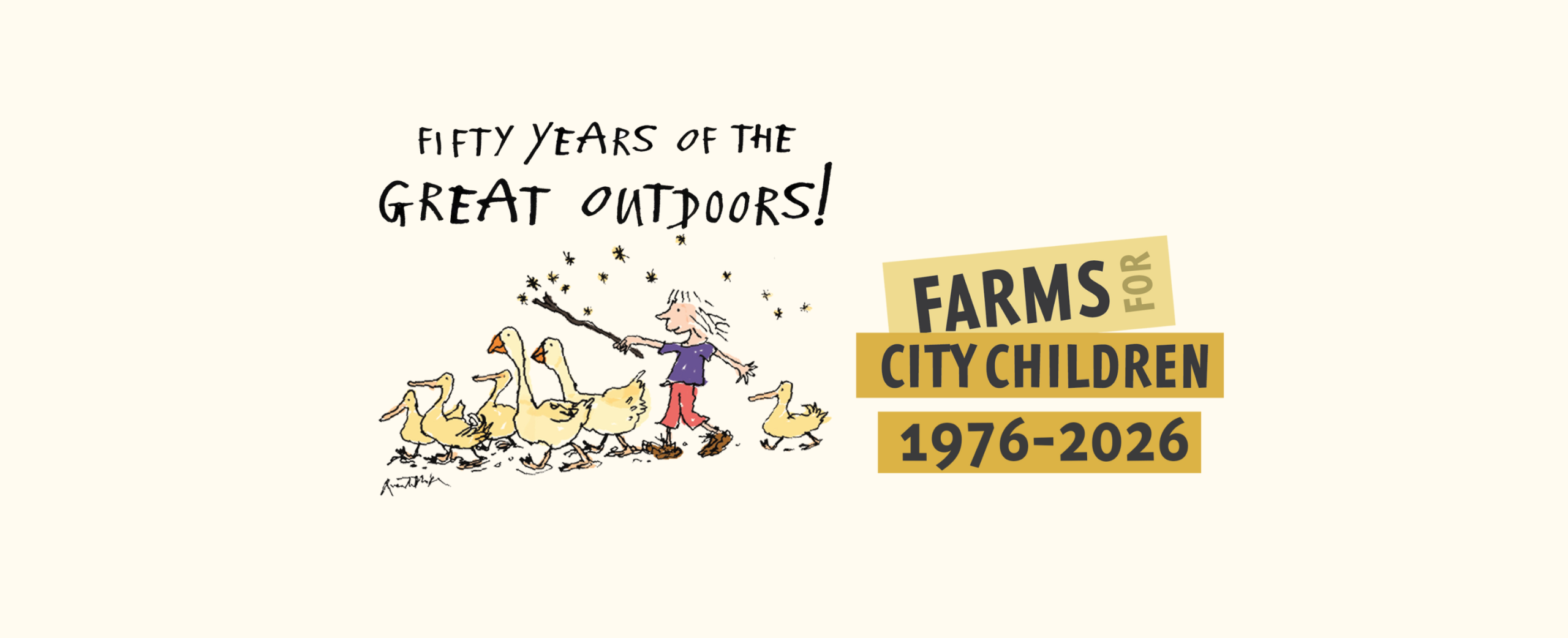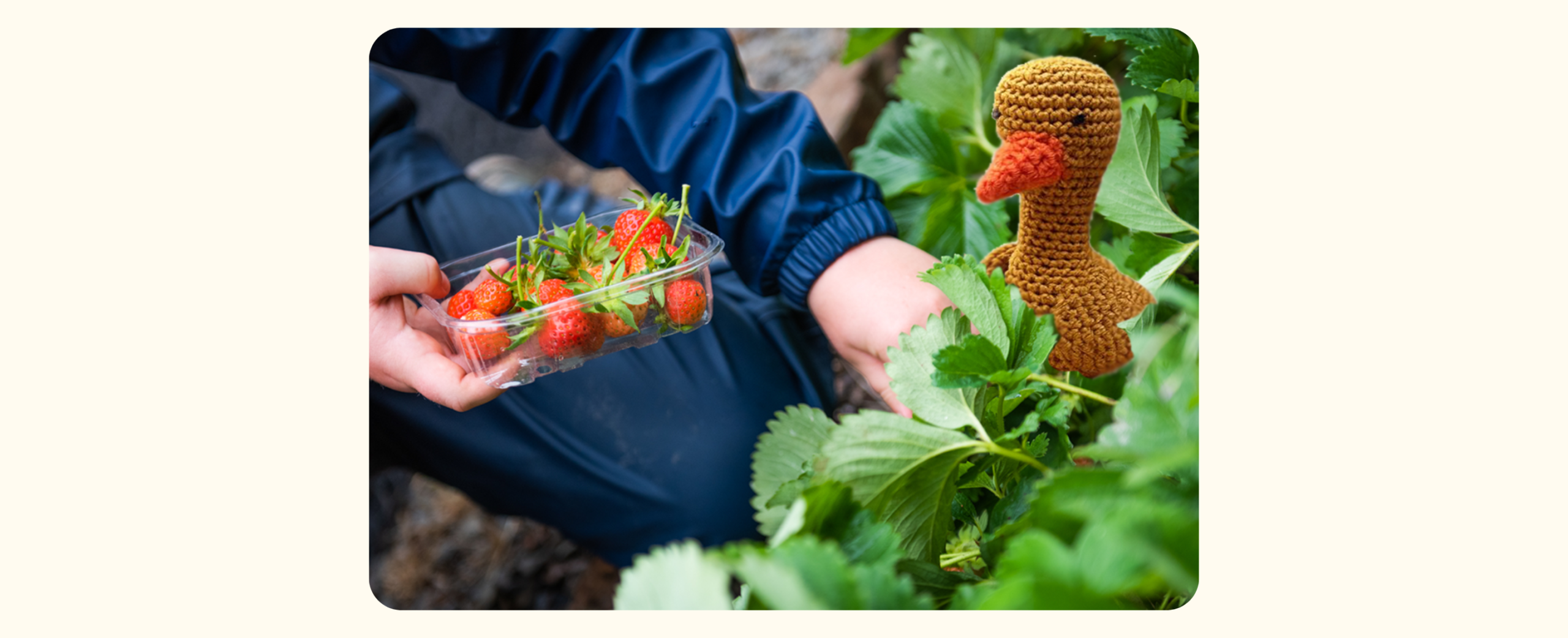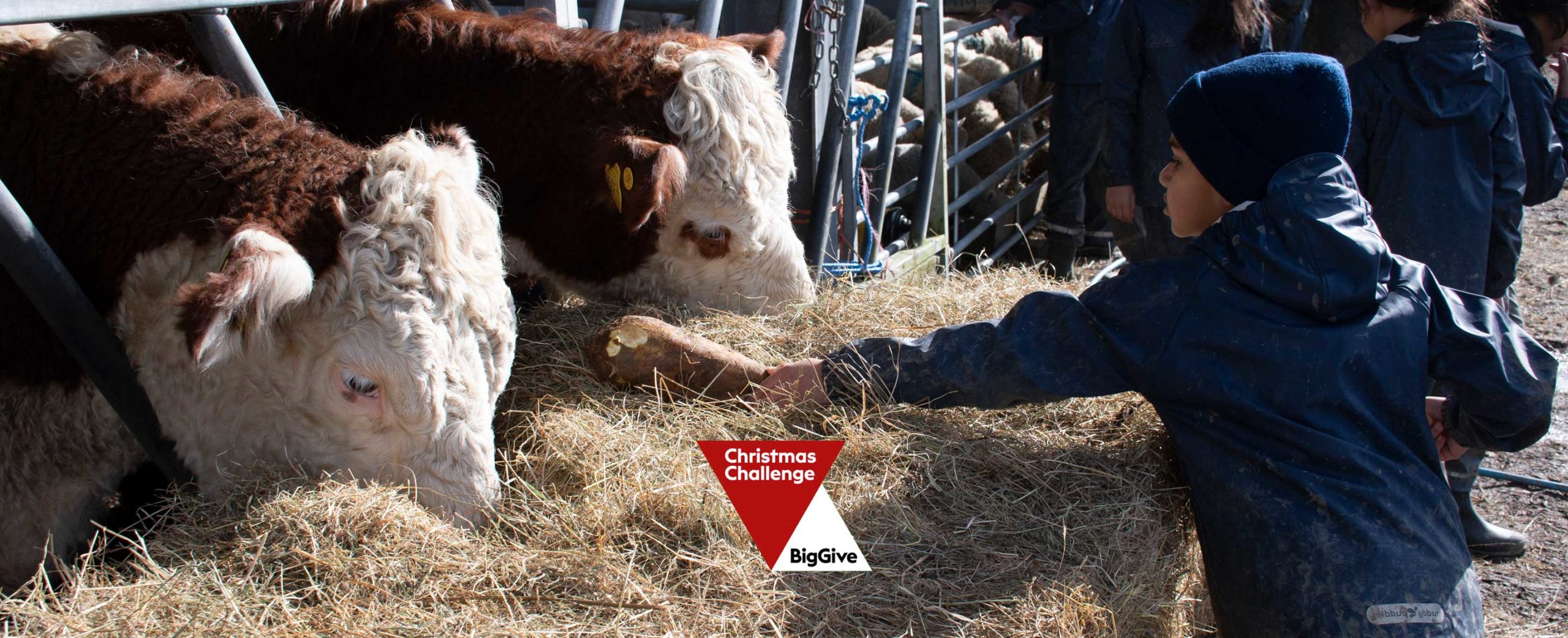By Charlie Harrison – Farm School Leader, Nethercott House
For Children’s Mental Health Week 2025, farm school leader Charlie reflects on how a week on one of our three farms enables children to learn about themselves in a new context, and the impact that has on their confidence and resilience.
“I can’t do it”.
It’s just above freezing, it is before breakfast. We are out in the chicken orchard, disgruntled birds scratching around, some looking up at us hopefully, some nervously eyeing the frosty mud. A group of year 4 students have been tasked with surrendering their hands to feed our hens, bewildered at the task suggested moments ago by me, a perfect stranger. This would be a perfectly logical reaction, given the circumstances. Having grown up on a farm, chickens seem like trees, like walking, like home. To those who haven’t worked with them before, they are tiny dinosaurs with a sharp point for a mouth. But in these new and unexpected spaces, there’s a chance for young people to take a leap and trust that they can make the jump. Some go big immediately, while others need to watch a confident friend, or follow a chicken around and work out for themselves if there is danger or not on those two scaly feet.
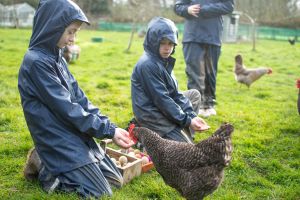
We are very lucky to not have a test at the end of our stay, and so we can support our beneficiaries as far as they want to try. For some, being in the same space as a chicken is as much as they can take; for others, some reassurance will have them cuddling a feathery bundle in no time.
Throughout the week on our farm, from stepping in the door where a cream tea awaits them, to all the animals, plants and weather that follows, we see people learning not just about food and farming, but about themselves in a new context.
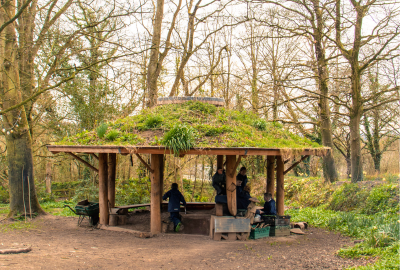
With support, children can learn to be successful inside and outside, to cook, to care for animals and land, to try, all with the possibility of failure nearby. And how wonderful to be able to fail, to try again, to find a new way. Building up an understanding of how to struggle, to have a list of times you got through something tough, allows you to sit in a difficult present and know that you have tried hard before, that you have made it through all your toughest moments.
When our beneficiaries reflect on their time, they can point to highlights and difficult moments overcome, the times they surprised themselves, the new things they know that they like or dislike.
At the end of the week the staff share our highlights, and I have noticed that they are usually one of two types. Either, that the people who visited were caring and curious, making friends and navigating new dynamics, or that the resilience they had built in a few short days shone bright. That they had grown a community, and grown themselves.
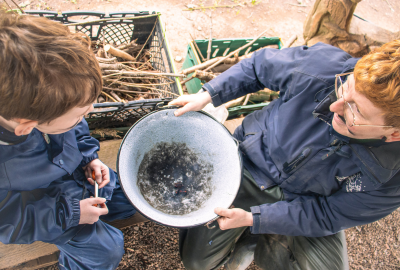
Charlie (they/them) is a farm school leader specialising in social, emotional and mental health needs (SEMH). They are passionate about empowering people from diverse backgrounds to connect with themselves, each other, and nature. Their favourite session to run at Nethercott House is the Spinney, where participants can explore nature on their terms, as well as lighting fires, building, creating and crafting.

